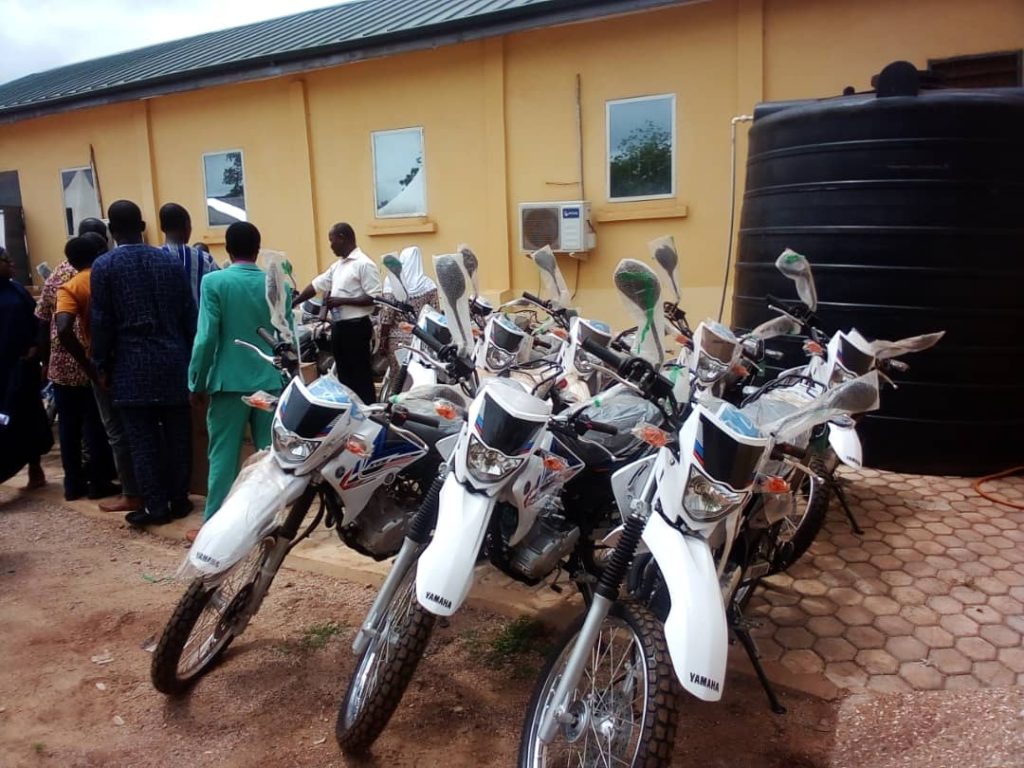By Albert Futukpor, GNA
Tamale, June 27, GNA – Medical equipment and logistics worth Gh¢2.3 million to ensure improved health care delivery for 164,586 individuals have been donated to 54 health facilities located in nine districts in the Northern, Savannah and Upper East Regions.
The medical equipment and logistics included pediatric stethoscopes, Thermometers (rectal and low reading), infant weighing scale, infantometre, weighing scale adult, dial column, hospital type metric with BMI, height metres, stethoscopes dual head, hemoglobin meters, and weighing scales (hanging).
The rest were 30 motobikes for health facilities and Regional Health Directorates (Nutrition Units), 30 laptops for health facilities and Regional Health Directorates (Nutrition Units), and three laptops, three projectors and three project stands for Regional Coordinating Councils.
The districts included Bole, Sawla-Tuna-Kalba, East Gonja, Tolon, Kumbungu, Nanumba South, Builsa South, Kassena-Nankana West and Kassena Nankana Municipal.
The items were donated as part of the Championing Nutrition and Gender Equality (CHANGE) project, which is being implemented by Children Believe, an international NGO, in partnership with Norsaac, an NGO, with funding support from Global Affairs Canada.
The CHANGE project seeks to improve nutrition for the poorest and most marginalised, especially women, adolescent girls, and children in the country.

Mrs Esenam Kavi De Souza, Country Director, Children Believe, speaking during the handing over of the equipment and logistics to the Northern Regional Medical Store in Tamale, said the support would enhance the capacity of the Ghana Health Service at the regional, district, and facility levels to provide improved health services to the people.
She urged the beneficiary facilities to use the items judiciously for the benefit of the targeted populations including the vulnerable, pregnant women, lactating mothers, and adolescent girls.
Mr Eric Chimsi, Senior Development Officer, Canadian High Commission, said the support would enhance the data storage and processing capacity of the facilities for data-driven decision making and choices.
Dr Abdulai Abukari, Northern Regional Director of Health said, “These medical equipment and logistics have become a game changer towards the provision of quality health services for enhancing the nutritional well-being of the most vulnerable and marginalised populations, particularly women, adolescent girls, and children in the project districts.”
He gave assurance that the items would be distributed to the beneficiary facilities and institutions to facilitate their work.
GNA